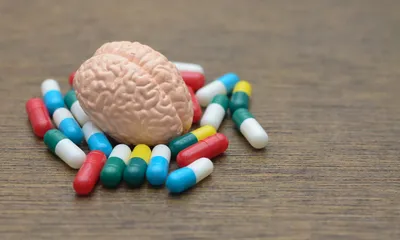Breast Cancer
-
Description
-
Signs & Symptoms
-
Anatomy
-
Cause
-
Diagnosis
What is Breast Cancer?
Breast cancer is a disease where cells in breast tissue become cancerous and then multiply to form a malignant tumor in the breast. This type of cancer is the most frequently diagnosed one for women worldwide, and there are different types of breast cancer. The most common one is ductal carcinoma, which is when cells of the tubes that carry milk from the glands to the nipple become cancerous. Lobular carcinoma is also a common diagnosis for breast cancer, and this is when the cancer starts in the glands themselves.
The greatest risk with breast cancer is the same as it is for all types of cancer, and that being that the cancer metastasizes and spreads into the lymph nodes or elsewhere in the body. Breast cancer is treatable, with better treatment outcomes being highly reliant on early detection and starting cancer treatment when malignant tumor growth is in its early stages.
What Causes Breast Cancer?
Cell mutation and multiplication is the physiological working of breast cancer in the same way it is for any type of cancer. But there are risk factors that are specific to breast cancer, and they include being female, being over the age of 55, family history of breast cancer, BRCA1 and BRCA2 gene mutations, obesity, tobacco use, excessive alcohol consumption, or exposure to radiation.
Hormone replacement therapy is also a possibility with what causes breast cancer, and breast cancer is also more of a risk for older women who have never been pregnant.
Breast Cancer Symptoms
Early detection is very important for being able to put breast cancer into remission, and women can benefit from being aware of breast cancer symptoms so that they can see a doctor without delay if they experience any of them. The 2 primary ones of these symptoms are changes to the size, shape, or contour of the breast or feeling a mass or lump in the breast.
Other possible breast cancer symptoms are changes in the look and feel of the skin around the nipple, or lumps in the breast or underarm that persist through a woman’s menstrual cycle. There may also be a marbled and hardened area under the skin anywhere on the breast, or clear or blood-stained fluid discharge from the nipple.
Breast Cancer Treatment
The most conventional approach to breast cancer treatment is to have the person start on breast cancer treatment medications like Arimidex or Femara. The treatment regimen will usually also involve chemotherapy treatments to slow the growth of the tumor(s) so that there is a greater chance the cancer can be put into remission. Immunotherapy or hormone therapy with selective estrogen receptor therapy may also be possibilities for breast cancer treatment as determined by the patient’s doctor.
For some patients, more major surgery may be required if breast cancer tumor growth cannot be contained with the approaches listed above. These potential surgeries include mastectomy or lumpectomy, and after these surgeries it is sometimes possible for women to have breast reconstruction surgery.
Signs & Symptoms
- Lump in the breast or underarm
- Change in breast shape or size
- Nipple discharge
- Nipple retraction
- Breast or nipple pain
- Skin changes on the breast
- Swelling of part or all of the breast
- Redness or flaky skin on the breast
- Thickening of the breast skin
Anatomy
- Breast tissue
- Lobules
- Ducts
- Lymph nodes
- Chest wall
- Axillary lymph nodes
- Nipple
Cause
- Genetic mutations (BRCA1, BRCA2)
- Family history of breast cancer
- Radiation exposure
- Hormonal factors
- Obesity
- Alcohol consumption
- Aging
- Reproductive history
- Hormone replacement therapy
Diagnosis
- Mammogram
- Ultrasound
- Breast MRI
- Biopsy
- Genetic testing
- Physical examination
- Blood tests
- CT scan
- PET scan



